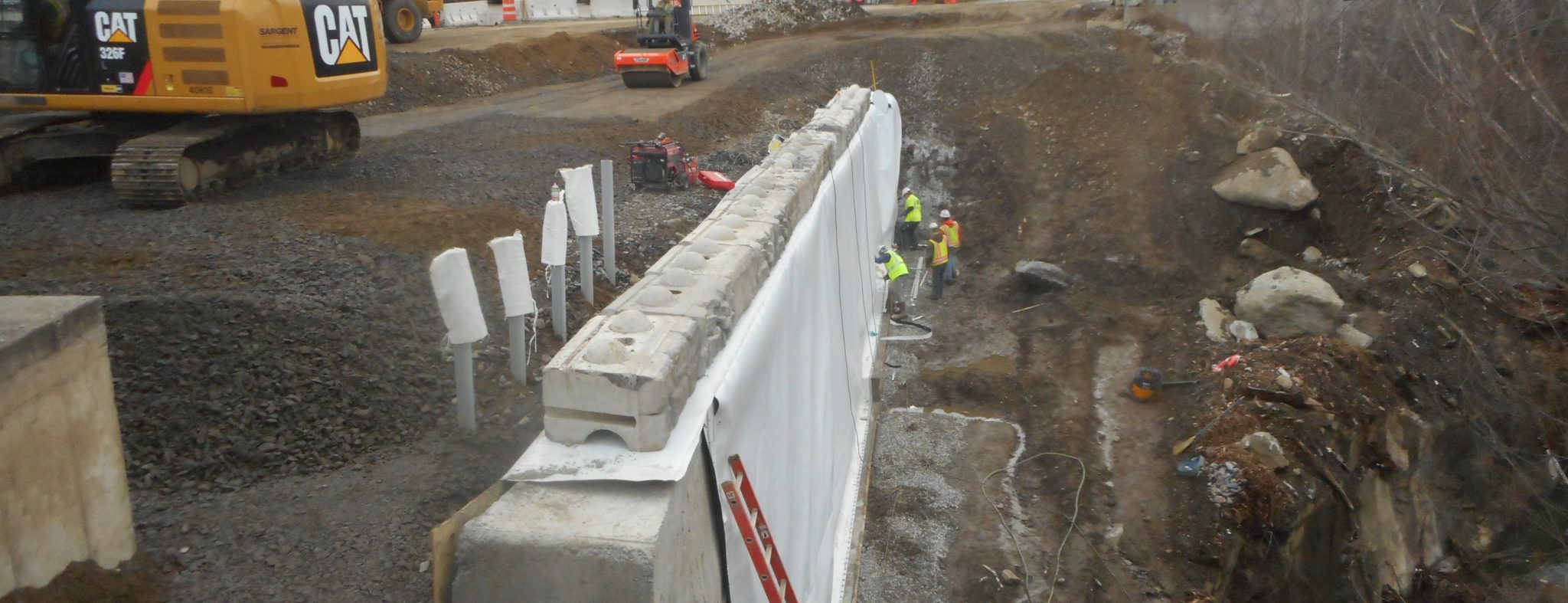The Advantages of Partnering with a Leading Consulting Engineer for Your Business Needs
The Advantages of Partnering with a Leading Consulting Engineer for Your Business Needs
Blog Article
The Interdisciplinary Approaches in the Geotechnical Industry: Bridging the Space In Between Engineering, Geology, and Environmental Scientific Research for Optimal Task Outcomes
The integration of engineering, geology, and ecological science within the geotechnical market is not simply advantageous; it is important for attaining optimal job end results. What techniques might arise to promote this essential cooperation and boost the efficiency of geotechnical methods?
Value of Interdisciplinary Cooperation
The value of interdisciplinary collaboration in the geotechnical industry can not be overstated. Efficient geotechnical tasks require the combination of varied competence from different fields, consisting of engineering, geology, and environmental scientific research. This cooperation makes certain that all facets of a project are thought about, causing thorough solutions that address complex challenges.
Interdisciplinary partnership fosters development by making it possible for experts to share understandings and methods that may not appear when operating in isolation (engineer of record). By leveraging the staminas of multiple disciplines, groups can determine prospective dangers, optimize layout procedures, and boost the sustainability of geotechnical jobs. Additionally, such cooperation promotes a holistic understanding of site-specific problems, which is critical for precise assessment and decision-making.
The intricacy of geotechnical projects demands a worked with method to analytic. Ultimately, interdisciplinary partnership is important for progressing ideal methods and achieving quality in the geotechnical sector.
Key Duties of Each Discipline
Partnership amongst numerous techniques is not just valuable; it is essential for the successful implementation of geotechnical jobs. Each self-control-- engineering, geology, and ecological science-- plays a distinctive yet interconnected duty that adds to forecast effectiveness and sustainability.
Geotechnical designers are mostly liable for designing foundations and guaranteeing structural integrity. They evaluate soil and rock properties to assess load-bearing capabilities, providing vital data for risk-free building and construction practices. Their proficiency makes it possible for the solution of innovative services to intricate difficulties.
.webp)
Environmental scientists analyze the possible effects of building on ecosystems and water sources. They carry out environmental assessments and create mitigation strategies to reduce negative results. By incorporating eco-friendly considerations, they ensure conformity with guidelines and promote sustainability throughout the task lifecycle.
Study of Effective Assimilation
Effective integration of geotechnical disciplines can be exemplified with numerous case research studies that highlight the effectiveness of team effort in attending to intricate engineering challenges. One noteworthy instance is the building and construction of the Hong Kong-- Zhuhai-- Macau Bridge, where a collaborative approach involving geotechnical design, geology, and environmental science was vital. Rock hounds and designers functioned in unison to assess the seabed problems and maximize the structure design, making certain security and minimizing ecological impact.
One more impactful instance is the enhancement of incline stability in the San Francisco Bay Location, where an interdisciplinary team incorporated geotechnical analysis with ecological assessments. By integrating hydrological research studies and geological surveys, the team efficiently identified prospective landslide risks and implemented efficient reduction procedures, enhancing safety and security and sustainability.
Additionally, the redevelopment of Brownfield more tips here sites often needs a multidisciplinary method. In one situation in Chicago, collaboration amongst geotechnical designers, environmental researchers, and metropolitan planners resulted in the effective removal of contaminated soil, permitting the safe improvement of the site right into a community park. These study highlight that interdisciplinary cooperation not just addresses technical challenges however additionally fosters innovative solutions that profit both tasks and neighborhoods.
Difficulties in Multidisciplinary Projects

Moreover, working with routines and process among various teams can be problematic, particularly when each self-control has one-of-a-kind task landmarks and deliverables. This misalignment can result in delays and increased prices. The obstacle of source appropriation additionally impends large; guaranteeing that customized experience is readily available at essential times calls for cautious preparation and foresight.
Finally, regulative conformity poses another considerable challenge. Each self-control may deal with different regulative structures, and aligning these needs to meet project purposes can be time-consuming and complex. Addressing these obstacles demands strong leadership and effective interaction methods to promote cooperation and guarantee that multidisciplinary groups function cohesively in the direction of shared objectives.
Future Trends in Geotechnical Practices
As the geotechnical sector advances, emerging trends are reshaping techniques to deal with the challenges faced in multidisciplinary jobs - geotechnical engineers. One substantial pattern is the raised combination of advanced modern technologies, such as expert system and device discovering, into geotechnical analysis and layout. These modern technologies boost anticipating modeling and danger analysis, enabling designers to make more informed decisions throughout the project lifecycle

Furthermore, the fostering of digital twins and real-time monitoring systems is ending up being a lot more widespread. These devices facilitate ongoing assessment of soil conditions and structural performance, enabling timely interventions when issues develop.
Final Thought
In conclusion, the combination of engineering, geology, and ecological scientific research is important for achieving optimal end results in the geotechnical sector. Successful situation studies illustrate the benefits of this approach, while recognizing the difficulties dealt with in multidisciplinary projects.
The integration of engineering, geology, and ecological science within the geotechnical sector is not simply beneficial; it is crucial for accomplishing optimal project outcomes. Effective geotechnical projects call for the assimilation of diverse competence from numerous fields, including engineering, geology, and ecological scientific research.Navigating the complexities of multidisciplinary jobs in the geotechnical market provides numerous significant obstacles.As the geotechnical sector develops, arising trends are improving techniques to resolve the difficulties encountered in multidisciplinary projects. Geotechnical engineers are progressively teaming up Find Out More with ecological scientists to make certain that jobs line up with sustainability objectives and comply with regulatory requirements.
Report this page